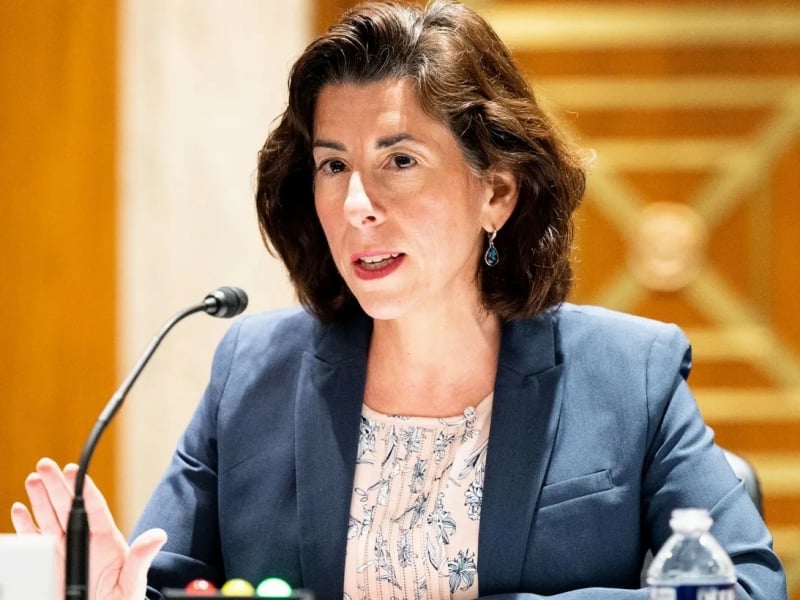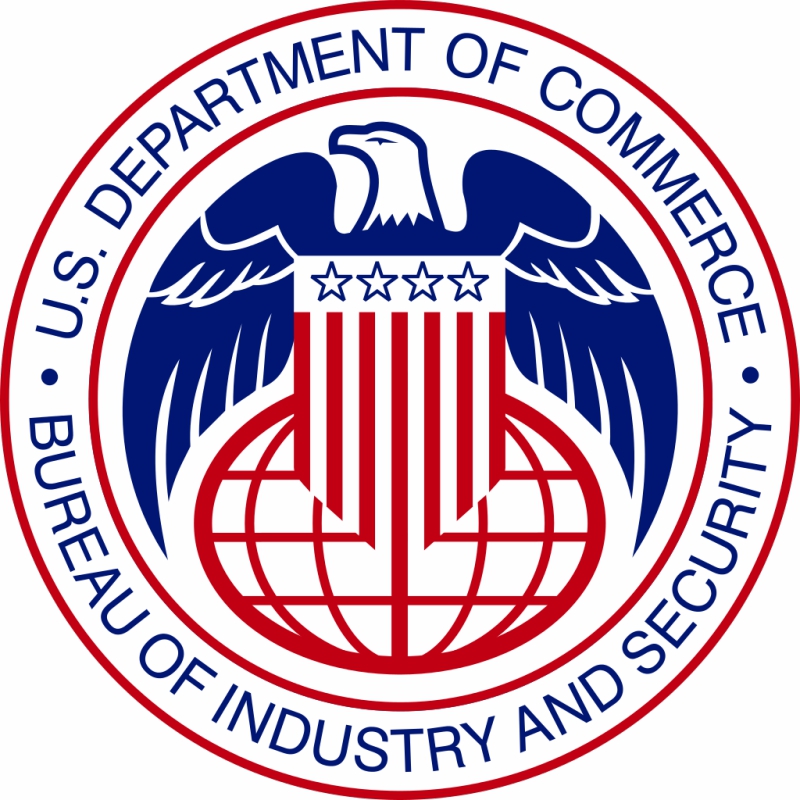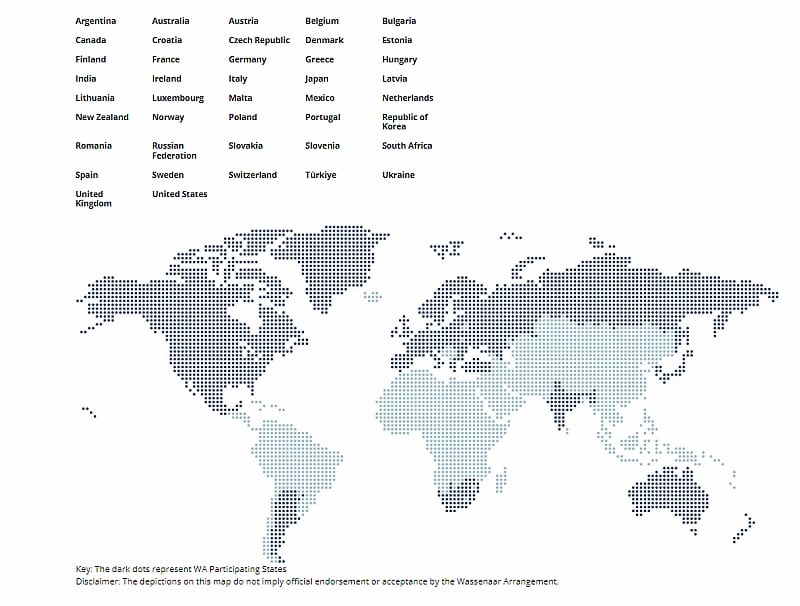The US Commerce Department’s Bureau of Industry and Security (BIS) has published an Interim Final Rule severely restricting US firearms exports and creating additional regulatory burdens. The new rule makes last October’s export “pause” permanent. We understand that no one wants to read a bunch of bureaucrat-speak, so we’ll lay out the important parts below, along with how the rule was implemented and its projected impact.

How We Got Here
BIS announced a supposed “90-day pause” on issuing new firearms export licenses on October 27, 2023, to re-examine export policy, citing national security concerns. The 90-day pause lasted for 180 days, only ending with the new Interim Final Rule. The “pause” was clearly just a head start on developing the rule for final publication.
Commerce Secretary Gina Raimondo commented on the new rule, saying, “The Commerce Department is protecting America’s national security by making it harder for criminals, terrorists, and cartels to get their hands on U.S.-made firearms. Too often, firearms exports fall into the wrong hands and end up being used in ways that directly undermine U.S. national security and foreign policy interests. To combat this, we’re taking strategic, targeted actions, including restricting exports to commercial entities in high-risk countries and increasing scrutiny and tracking of all firearms exports.”
The federal Administrative Procedures Act (APA) specifies that proposed rules be open to public comment before their publication. There was no public comment period, though Commerce has announced they will take public comments until July 1, 2024, when the new rule takes effect. So, essentially, you can comment on the rule that Commerce has already adopted. That defeats the public comment period’s purpose, which is supposedly to influence the proposed rule’s structure and tenets.
The House of Representatives twice requested information regarding the “pause” from last October, but Commerce stonewalled the committee both times. Apart from threatening to subpoena the requested documents, Congress does not appear to have pursued it further, allowing BIS to do whatever it wanted. Those same Representatives are now calling for Congress to overturn the rule. Don’t bet on that happening. I suspect most of them are making noise to satisfy a few constituents. This won’t be a priority, at least not yet.
Key Components
The Interim Final Rule deals primarily with firearms export licenses, who has those licenses, and to whom they can export their products. The rule’s key policy changes are as follows:
- More stringent review standards. BIS is now accounting for political and social factors when approving export licenses for certain end users. Those factors include “terrorism risks, human rights concerns, state fragility, corruption, the nature and capabilities of the firearm, and past instances of diversion and misuse.”
- Presumption of denial for commercial transactions in countries the State Department has identified as high-risk. “BIS will apply a ‘presumption of denial’ standard to applications involving nongovernmental recipients located in a destination where the State Department has determined there is substantial risk that firearm exports will be diverted or misused in a manner contrary to national security and foreign policy.”
- Data collection and transparency. “BIS will improve data collection on firearms exports by adopting new export control classification numbers (ECCNs) to track what kinds of firearms U.S. manufacturers are exporting abroad. These include new ECCNs for semi-automatic firearms and related items.”
- Additional documentation for license applicants. “BIS is implementing regulatory changes to licensing procedures that will help validate that firearms are only exported to trustworthy foreign entities. BIS is reducing the general license validity period from 4 years to 1 year, which will ensure that BIS is able to adapt to an ever-changing global security environment. Furthermore, for countries with less-developed export control regimes, BIS will require the submission of additional documents from licensees before approving a license, including a purchase order and import certification.”

Policy Summary
To summarize, BIS will now grant export licenses based on the administration’s political views rather than following its mission of bolstering American business interests. If that sounds reasonable, please understand that foreign entities have already stated they will make up any losses by purchasing from other nations. Commerce publicly downplayed that possibility, saying that US-made firearms are categorically superior to foreign-made weapons. That’s nonsense, of course.
BIS is also telling American firearms companies not to bother applying for licenses to export to foreign entities that the administration doesn’t approve of, for whatever reason. That “presumption of denial” is another example of politics dictating business decisions. More on that momentarily. The political considerations may not be exactly as the rule portrays them.
BIS will now track firearms exports via a new system that specifically targets semi-automatic weapons. That should begin to shed some light on those political considerations.
BIS is reducing licensure periods from four years to one year. Given the mercurial political climate, exporters must now incur the expense of being in constant application mode, meaning that they will be paying four times as much for lawyers and policy experts than in the past. Lawyers and policy experts don’t come cheap.
Nations that signed the Wassenaar Arrangement on Export Controls for Conventional Arms and Dual-Use Goods and Technologies are exempt from the rules-enhanced controls. According to its website, “the Wassenaar Arrangement has been established in order to contribute to regional and international security and stability by promoting transparency and greater responsibility in transfers of conventional arms and dual-use goods and technologies, thus preventing destabilizing accumulations.”
Finally, BIS will revoke all current export licenses on July 1st, requiring all exporters to reapply under the new guidelines. This will create additional delays and cost these companies even more money.

Domestic Politics
Evidence points to domestic politics, not national security, being behind the new rule. That shouldn’t be surprising, considering the current administration’s clear hostility to the gun industry.
Media Allegations
Bloomberg News published a series called America, Global Gun Pusher late last year. The October 19, 2023, installment breathlessly reported that “American guns – and gun culture – are being exported across the globe at unprecedented levels, and one of the biggest backers of the industry is the US Department of Commerce.”
The article went on to trash Commerce for facilitating foreign contracts for US firearms, especially by enabling and aiding foreign travel to SHOT Show. It was all supposedly very shocking. Imagine the Commerce Department helping foreign buyers attend the largest firearms trade show in the world, from which American companies benefit greatly. The sheer audacity.
The article also decries US-made guns as promoting a supposedly toxic gun culture in Latin America, implying that rising murder rates are the result. Never mind that Bureau of Alcohol, Tobacco, Firearms, and Explosives (ATF) data show that only about 1 percent of legally exported firearms are recovered at crime scenes and traced. ATF data also shows that most Latin American crime guns originate from nations other than the United States.
The Political Response
Someone in the White House apparently noticed. The Biden Administration is the most outspokenly anti-gun regime in American history. Joe Biden himself publicly declared that “firearm manufacturers are the enemy” during a debate. He and his staff have consistently called for eradicating legal protections for gun makers despite that protection being nothing more than what is enjoyed by any other industry.
Evidence suggests that the White House Office of Gun Violence Prevention is ultimately behind this new rule. The House Oversight Committee specifically asked that question based on what they were hearing. The Commerce Department did not provide an answer that we know of. In case you missed it, the White House Office of Gun Violence Prevention is a Biden creation staffed by former senior activists from organizations like Everytown for Gun Safety. It was created specifically to push gun control outside of Congress.
One of this office’s primary tactics is targeting gun companies’ finances by enabling frivolous lawsuits and enacting costly regulations. This Commerce Department rule looks to be a similar effort clothed in national security language. The Wassenaar Arrangement provides cover, and the BIS provides the tools since the bureau liaises directly with Wassenaar. But, once again, BIS refuses to acknowledge that the rule’s purpose is a sham since foreign companies will gladly fill the gap created by increased US regulations.
This office reportedly saw an opportunity in the Bloomberg report. Bloomberg even appeared to take credit for the October “pause” in a later article. That a Bloomberg company and the White House Gun Control office worked together should not be at all surprising.

The Cost
BIS estimated that the “pause” would cost the gun industry some $10 million. But it was far higher than that. Since October 27, at least two support industry companies have gone out of business entirely, resulting in lost jobs and forfeiture of investments, not to mention lost business and the impact on local economies.
The National Shooting Sports Foundation (NSSF) estimates the minimum cost of the new rule to be north of $250 million. The American firearms industry will have to absorb those costs, which it will have no choice but to pass on to its customers. So, the Biden Administration isn’t only costing gun companies money; they’re trying to jack up the prices for us all.
Bottom Line
This Commerce Department rule looks to be yet another Biden backdoor gun control program. The administration has been unable to pass its radical anti-gun agenda through Congress, so it has turned to Executive rulemaking. Look no further than all the recent arbitrary ATF rules. Biden and his crew have demonstrated that they will hurt the industry and gun owners in any way they can, and this rule fits the profile. And that’s not just my opinion. NSSF agrees.
I expect NSSF, and possibly others, to challenge the Commerce Department’s rule. It looks to be an APA violation at the very least. It also appears to be anathema to Commerce’s stated mission, namely, to promote American business. We’ll keep you updated on this important story, as it will affect us all.


